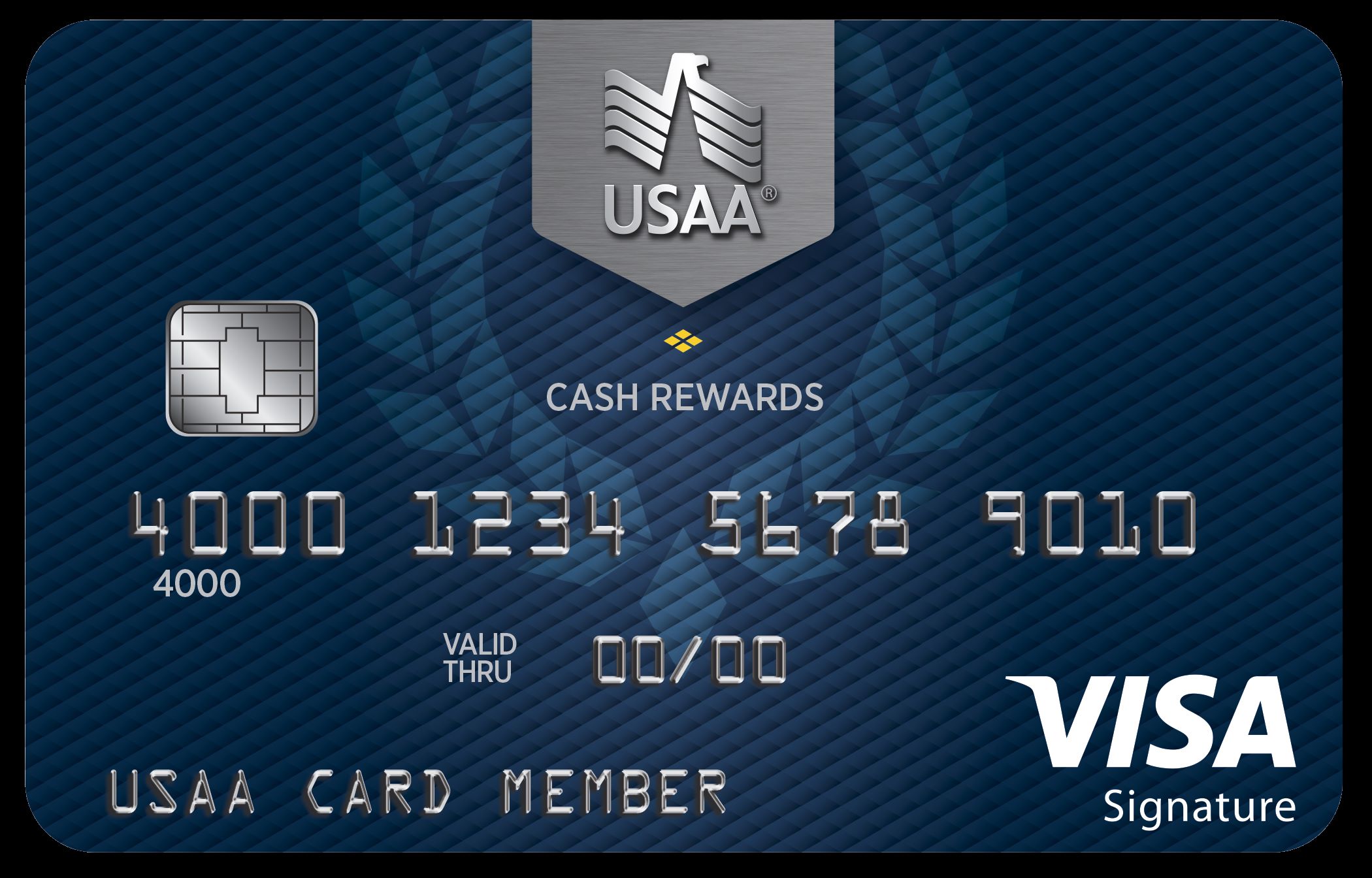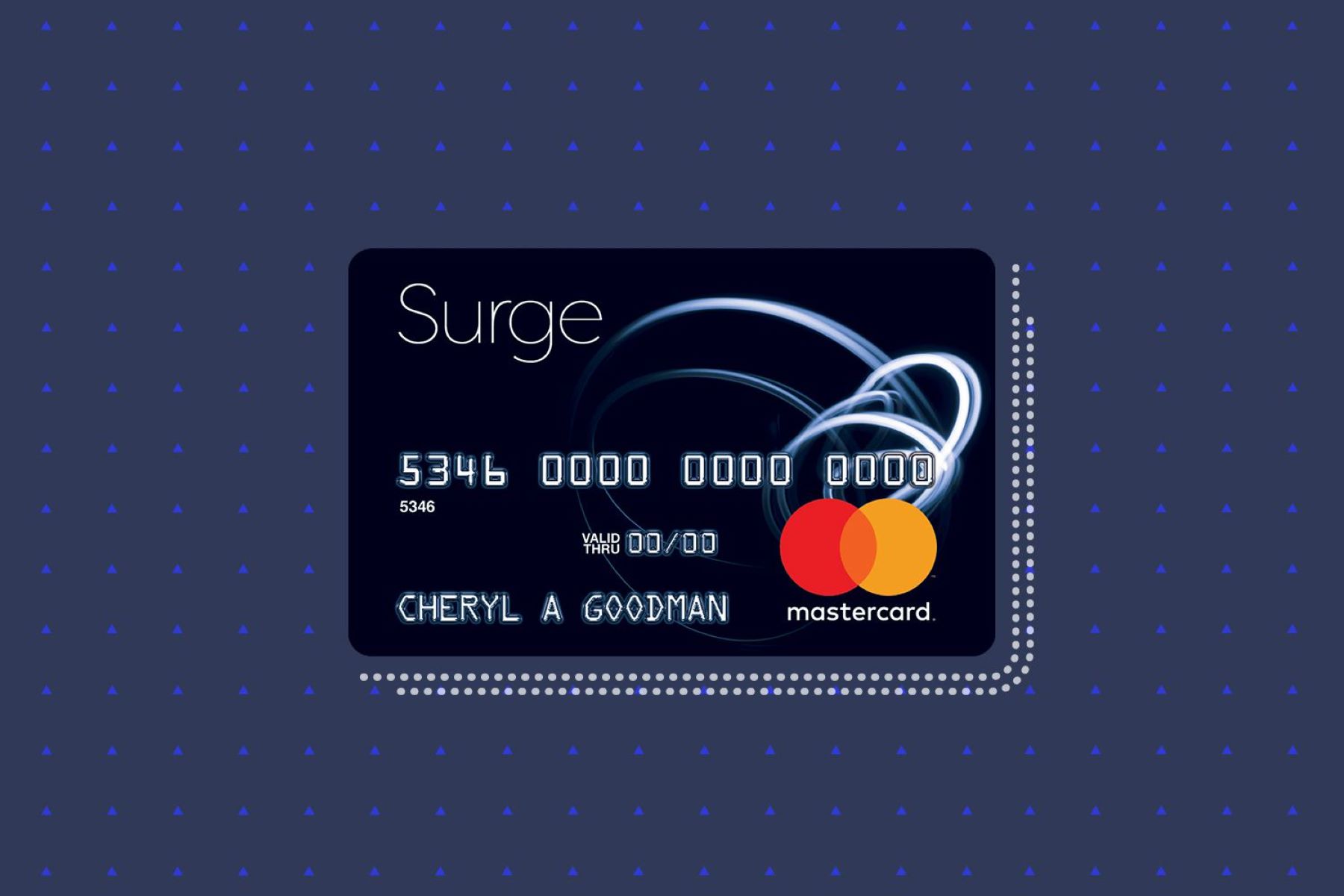Home>Finance>What Credit Score Do You Need For USAA Credit Card


Finance
What Credit Score Do You Need For USAA Credit Card
Modified: March 6, 2024
Discover the credit score requirement for USAA Credit Card and find out how to improve your finance for a higher chance of approval.
(Many of the links in this article redirect to a specific reviewed product. Your purchase of these products through affiliate links helps to generate commission for LiveWell, at no extra cost. Learn more)
Table of Contents
Introduction
A USAA credit card can be a valuable financial tool, offering various benefits and rewards for cardholders. Whether you’re looking to earn cashback, travel rewards, or simply build your credit history, USAA offers a range of credit card options to suit your needs.
However, before applying for a USAA credit card, it is important to understand the role your credit score plays in the application process. Your credit score is a numerical representation of your creditworthiness and serves as a key factor in determining whether you qualify for a credit card and what terms and rewards you may be eligible for.
In this article, we will delve into the specifics of what credit score you need to apply for a USAA credit card, as well as important considerations and tips to improve your credit score. By understanding the requirements and taking steps to enhance your credit profile, you can increase your chances of being approved for a USAA credit card and enjoy the benefits it offers.
Understanding USAA Credit Cards
USAA (United Services Automobile Association) is a financial services provider that primarily serves members of the military community and their families. As a member-owned organization, USAA offers a range of banking, insurance, and investment products, including credit cards.
USAA credit cards come with various features and benefits designed to meet the unique needs of service members. These may include cashback rewards, travel rewards, low interest rates, and no annual fees. Additionally, USAA is known for its exceptional customer service and commitment to serving those who have served our country.
USAA credit cards are widely accepted, providing financial flexibility and convenience for cardholders. Whether you are stationed domestically or overseas, having a USAA credit card can help you make purchases, pay bills, and handle various financial transactions with ease.
Furthermore, USAA credit cards offer added security measures such as zero liability for unauthorized transactions and fraud alerts. This ensures that your finances are protected, giving you peace of mind as you utilize your card for day-to-day expenses.
It is important to note that USAA credit cards are available exclusively to USAA members. Membership is open to current and former members of the military, as well as their eligible family members. If you are not yet a member, you can easily join USAA and gain access to its credit card offerings, as well as other financial products and services.
Importance of Credit Scores
Your credit score is a critical factor that lenders, including USAA, use to evaluate your creditworthiness. It reflects your borrowing history, payment habits, and overall financial responsibility. A high credit score indicates to lenders that you are likely to repay your debts on time and manage your credit responsibly.
When it comes to applying for a USAA credit card, your credit score plays a significant role in the approval process. A strong credit score can increase your chances of being approved for a credit card and may even qualify you for better terms, such as a lower interest rate or higher credit limit.
Additionally, your credit score can impact the rewards and benefits you are eligible for. Some USAA credit cards offer premium rewards and exclusive perks, which may require a higher credit score to qualify. By maintaining a good credit score, you can access these enhanced benefits and maximize the value of your credit card.
Moreover, your credit score extends beyond credit card applications. It can affect your ability to secure loans, such as mortgages or car loans, and can even impact your insurance rates and rental applications. Therefore, building and maintaining a strong credit score is essential for your overall financial well-being.
It is crucial to monitor your credit score regularly to ensure accuracy and identify potential issues. You can obtain a free copy of your credit report from the major credit bureaus (Equifax, Experian, and TransUnion) once a year. Reviewing this report allows you to identify any errors or discrepancies that may be affecting your credit score and take the necessary steps to rectify them.
Ultimately, a good credit score demonstrates that you are a responsible borrower and financially trustworthy. By understanding the importance of credit scores and taking proactive measures to improve and maintain your score, you can strengthen your financial profile and increase your chances of obtaining a USAA credit card and other financial opportunities.
What Credit Score is Required for a USAA Credit Card?
While USAA does not publicly disclose the specific credit score requirements for its credit cards, having a good or excellent credit score significantly improves your chances of qualifying for a USAA credit card.
A good credit score is generally considered to be around 670 or above on the FICO credit scoring model, which ranges from 300 to 850. However, to increase your likelihood of approval and access more favorable terms and rewards, it is recommended to aim for a credit score of 700 or higher.
In addition to your credit score, your credit history and income level are also factors that USAA considers when evaluating credit card applications. A solid credit history with a track record of responsible credit usage, on-time payments, and low credit utilization can offset a slightly lower credit score.
It is important to note that meeting the minimum credit score requirement does not guarantee approval for a USAA credit card. Other factors, such as your income, existing debts, and the specific credit card you are applying for, can also influence the approval decision.
If your credit score falls below the recommended range, you may still be eligible for certain USAA credit cards that are designed for individuals with limited or fair credit. These cards may have lower credit limits and fewer rewards, but they can help you build or rebuild your credit when used responsibly.
To determine your credit score and assess your creditworthiness, USAA will request a copy of your credit report from one or more of the major credit bureaus. They will analyze your credit history, payment patterns, and credit utilization ratio to evaluate your risk as a borrower.
Remember that credit scores are not static and can change over time. By adopting good credit habits, such as paying bills on time, keeping credit card balances low, and avoiding excessive debt, you can improve your credit score and increase your chances of qualifying for a USAA credit card in the future.
Factors Considered by USAA for Credit Card Approval
When applying for a USAA credit card, several factors are taken into consideration during the approval process. While the specific criteria may vary depending on the type of credit card and your individual circumstances, here are some key factors that USAA typically evaluates:
- Credit Score: Your credit score plays a significant role in the approval decision. A higher credit score indicates a lower level of risk and increases your chances of being approved for a USAA credit card.
- Income and Employment: USAA considers your income and employment status to assess your ability to handle credit card payments. A stable income and steady employment can strengthen your application.
- Credit History: USAA reviews your credit history to assess your creditworthiness. They consider factors such as the length of your credit history, any negative marks (such as delinquencies or bankruptcies), and your overall payment history.
- Credit Utilization: USAA evaluates your credit utilization ratio, which is the percentage of available credit that you are currently using. Keeping your credit utilization low demonstrates responsible credit management and can improve your chances of approval.
- Debt-to-Income Ratio: USAA considers your debt-to-income ratio, which compares your total monthly debt payments to your gross monthly income. A lower ratio indicates a lower level of debt burden and may enhance your chances of approval.
- Recent Inquiries: USAA looks at the number of recent credit inquiries on your credit report. Multiple recent inquiries can indicate a higher level of risk and may impact the approval decision.
- Banking Relationship: USAA takes into account your existing relationship with the bank. Being a member in good standing and having other USAA products and accounts can positively influence the approval decision.
It is important to understand that these factors are not considered in isolation. USAA takes a holistic approach to evaluate your creditworthiness and make an informed decision based on multiple factors. Even if you have a lower credit score, having strengths in other areas, such as a high income or long credit history, can help compensate and improve your chances of approval.
By understanding the factors considered by USAA for credit card approval, you can assess your own financial situation and take appropriate steps to improve your eligibility and increase your chances of securing a USAA credit card.
How to Improve Your Credit Score for a USAA Credit Card
If your credit score doesn’t meet the requirements for a USAA credit card or you simply want to improve your creditworthiness, there are several steps you can take to boost your credit score:
- Pay Your Bills on Time: The most important factor in building a good credit score is making timely payments. Set up payment reminders or automatic payments to ensure you never miss a due date.
- Reduce Credit Card Balances: Lowering your credit card balances can improve your credit utilization ratio, which compares your credit card balances to your credit limits. Aim to keep your balances below 30% of your available credit.
- Avoid Opening Too Many New Accounts: Opening multiple new credit accounts within a short period can negatively impact your credit score. Limit new credit applications and focus on managing your existing accounts responsibly.
- Pay Off Debt: Reducing your overall debt load can improve your credit score. Focus on paying down high-interest debt and consider consolidating or refinancing to minimize interest charges.
- Monitor Your Credit Reports: Regularly review your credit reports to ensure they are accurate and dispute any errors you find. You are entitled to one free credit report from each of the major credit bureaus annually.
- Establish a Positive Credit History: If you have a limited credit history, consider opening a secured credit card or becoming an authorized user on someone else’s credit card. Making consistent, on-time payments will help build a positive credit history.
- Keep Old Accounts Open: Closing old credit card accounts can negatively impact your credit score, especially if they have a long history of on-time payments. Keep these accounts active and make occasional small purchases to keep them active.
Remember, improving your credit score takes time and responsible credit management. Be patient and vigilant in your efforts, and gradually you will see positive changes in your creditworthiness.
Once you have successfully improved your credit score, you can reapply for a USAA credit card and increase your chances of approval. With responsible credit card usage and timely payments, you can continue to build your credit and enjoy the benefits of a USAA credit card.
Other Qualifications for USAA Credit Cards
While credit score and credit history are crucial factors for USAA credit card approval, there are other qualifications and criteria that you should meet to be eligible for a USAA credit card:
- USAA Membership: USAA credit cards are exclusively available to USAA members. To be eligible, you must be an active duty, retired, or honorably separated veteran of the U.S. military, or an eligible family member of a current or former service member.
- Residency: USAA credit cards are available to U.S. residents who have a valid Social Security number and a physical U.S. address. If you are overseas due to military deployment, you can still apply for a USAA credit card.
- Age: You must be at least 18 years old to apply for a USAA credit card. If you are under 21, you may need to demonstrate independent income or have a co-signer to qualify.
- Income: While there is no specific income requirement, your income level can affect your ability to qualify for certain USAA credit cards. Higher income can demonstrate your ability to handle credit card payments, and some premium cards may have minimum income thresholds.
- Legal Capacity: You must have legal capacity to enter into a contract to be eligible for a USAA credit card. This means you should not have any legal restrictions or bankruptcies that prevent you from assuming financial obligations.
It is important to carefully review the specific eligibility requirements for each USAA credit card. Some cards may have additional qualifications or restrictions based on the type of card or the rewards and benefits offered.
When applying for a USAA credit card, you will need to provide personal information, including your name, address, Social Security number, and employment details. USAA may also request additional documentation to verify your eligibility and income, such as pay stubs or tax returns.
By ensuring that you meet all of the qualifications for a USAA credit card, you can improve your chances of a successful application and enjoy the benefits and rewards that USAA has to offer.
Conclusion
Obtaining a USAA credit card can provide numerous advantages, such as cashback rewards, travel benefits, and ease of financial transactions. However, to be eligible for a USAA credit card, it is important to understand and meet the necessary requirements.
Your credit score is a critical factor that USAA considers when evaluating credit card applications. While the specific credit score requirements may not be disclosed, having a good or excellent credit score significantly increases your chances of approval.
In addition to your credit score, USAA takes into account factors such as income, credit history, credit utilization, and debt-to-income ratio. Building and maintaining a strong credit profile can improve your creditworthiness and enhance your chances of being approved for a USAA credit card.
To improve your credit score, focus on making on-time payments, reducing credit card balances, and managing your existing debts responsibly. Regularly monitoring your credit reports and addressing any errors or discrepancies can also help maintain a healthy credit profile.
It is also essential to meet other qualifications for USAA credit cards, such as being a USAA member, having U.S. residency, meeting age requirements, and having legal capacity to enter into a contract.
By understanding and fulfilling these qualifications, you can position yourself for a successful application and enjoy the benefits and rewards that come with a USAA credit card. Remember to choose a credit card that aligns with your financial goals and spending habits, and use it responsibly to maximize its benefits.
Lastly, continue managing your credit wisely even after obtaining a USAA credit card. By maintaining good credit habits and regularly reviewing your credit profile, you can ensure ongoing financial success and access to future credit opportunities.














